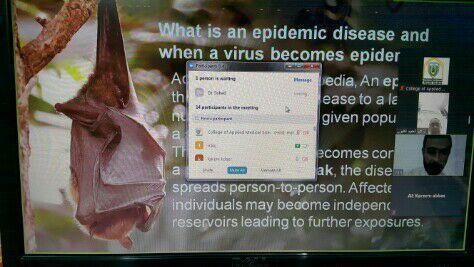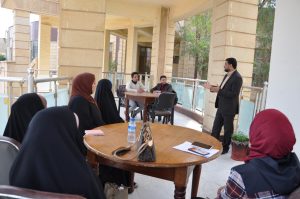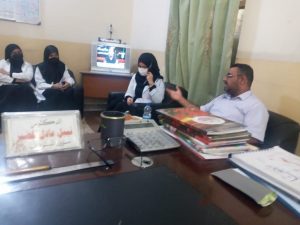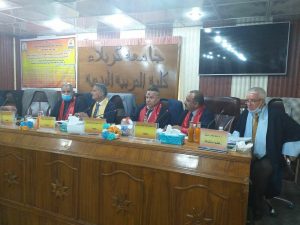With the participation of a number of researchers and specialists, through the zoom application, the Faculty of Applied Medical Sciences at the University of Kerbala has organized an electronic scientific seminar entitled (Challenges, lessons learned and future expectations”.
The symposium aims at raising the awareness of the epidemiology of deadly viruses, in particular the respiratory virus of Coronavirus, as a benefit 19 and ways of transmission through societies.
The symposium includes the definition of deadly global viruses and the role of the new coronavirus epidemiology, ways of defining and dividing epidemic viruses according to the standards of the World Health Organization and the family of corona viruses, their types and means of transmission and epidemiology with a focus on the new pandemic COVID- 19 in terms of known facts about it and what scientific reports and professional sources and those recovering from their strains mentioned severe and classification of its three main types moderate, new and critical.
The symposium deals with the importance of quarantine in terms of applications and challenges and its types such as border or home isolation or in hospitals and the importance of preventing roaming, gatherings and actions taken by Iraq, as well as the challenges facing our health institutions in terms of limited financial support, the absence of government infrastructure, weak health awareness and lack of commitment among the public in this field.
The symposium recommends that people should not tolerate health guidelines, as it would increase the number of victims, and government agencies should not be lenient in previous procedures such as curfews, home quarantines, free distribution of masks and gloves, and continued daily fogging, and encourage research centers in universities to establish specialized laboratories for viruses and know the cause of proliferation, a necessity providing buildings and laboratories for quarantine in all land border outlets, seaports and airports, with the establishment of laboratories for initial checks in these quarantines for those coming from outside the country, and increasing health media awareness from during seminars, interviews, posters, religious centers, training of professional and technical medical personnel on how to deal with dangerous viruses, and encouraging the opening of scientific departments for quarantine in medical technical colleges and graduating qualified technical cadres to work in health quarantines and laboratories for the detection of epidemic and transitional diseases invading the country.
































































